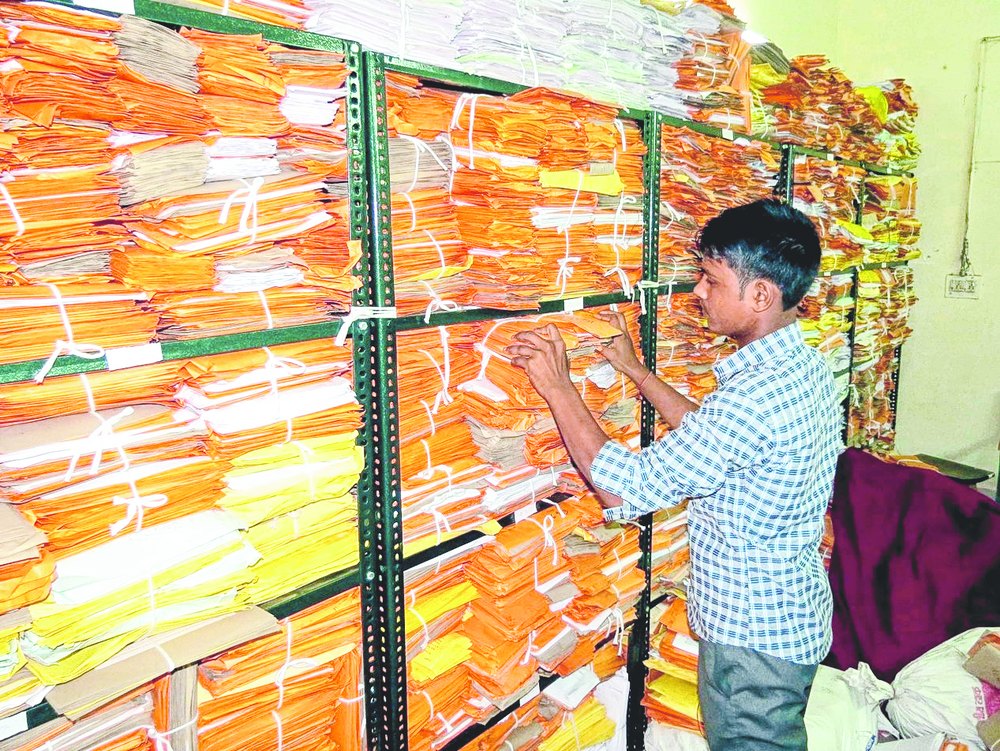
File picture of affidavits stacked at the Patra commission's office in Cuttack
Cuttack, Jan. 1: The setting up of a mechanism to create a database of the investors duped by sham deposit collection companies has begun.
The Justice R.K. Patra Commission probing the scam has received nearly eight lakh affidavits.
'The first lot of instruments reached yesterday. The information and technology department's Odisha Computer Application Centre (OCAC) is expected to come up with a workstation, separate server, around 50 computers and other accessories and create the database and digitise the records of the affidavits,' secretary to the commission Devraj Rout told The Telegraph here today.
'The database will contain details such as names of the companies, the depositors with address, amount deposited and received back by the depositor, balance amount due to be received and so on from the information available in the affidavits,' Rout said.
The Rs 1.29-crore project assumes importance with the state government having announced to return money to small investors based on the suggestions of the commission after creation of the database. The state government had kept aside Rs 300 crore as a corpus fund for protecting the depositors' interest in the supplementary budget for 2014-15. It had issued a notification on the creation of the fund on October 20.
The commission has started segregation of affidavits into various slabs on the basis of deposits made by the investors, who had filed affidavits.
'The process is intended to make it easier to isolate the small investors,' Rout said.
As part of the segregation process, nearly two lakh affidavits have been examined so far. Around 40 per cent of them are related to deposits less than Rs 10,000, sources said.
By October 31 last year, the commission had received 7.5 lakh envelopes. So far, 5.5 lakh envelopes, many of them containing more than one affidavit, have been opened.
Most of the affidavits were filed by depositors in the unauthorised deposit collection companies, apparently with the hope that the commission would help them get back their money.
The manual process of registering the affidavits had delayed the recording of details and slowed down the inquiry process. So far, the commission has been able to make an inventory of just 3,000 affidavits. Construction of the database is expected to speed up the process.
Chief minister Naveen Patnaik had appointed Justice R.K. Patra, a retired high court judge, as head of the single-member judicial commission on July 9 last year, following flak from the Opposition parties for the spate of cheating cases involving the deposit collection companies.
Though the tenure of the commission was originally three months, it has been given two extensions of six months each with the last one given on October 9 last year.
The commission will submit a report on those who have indulged in unauthorised collection of public deposits in the state.











